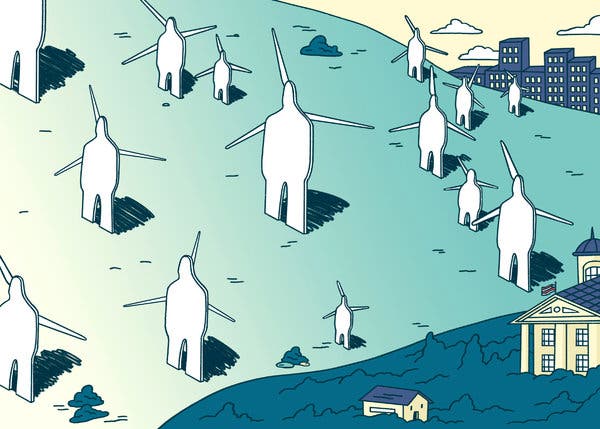In the age of climate change, one cannot help but ponder: Are governments genuinely combating global warming, or are they merely engaging in rhetorical posturing? This question is not just a playful musing; it encapsulates the quandary facing today’s global community as it grapples with environmental degradation. The consequences of climate inaction loom large, yet political discourse frequently drifts into vacuous promises and hollow commitments.
To dissect this multifaceted issue, it is essential to examine the dichotomy between policy-making and action. On the one hand, many nations have ratified international agreements like the Paris Accord, signaling a commitment to curbing greenhouse gas emissions. On the other hand, the implementation of these agreements often falters under the weight of political inertia, lack of funding, and vested interests that prioritize short-term economic gains over long-term sustainability.
Consider the juxtaposition of climate agreements with domestic policies. In numerous countries, fossil fuel subsidies continue unabated despite official pledges to shrink carbon footprints. Such discrepancies raise an eyebrow; if governments are sincere in their efforts to combat global warming, why do they perpetuate practices that exacerbate the very problem they pledge to mitigate? This contradiction fuels skepticism among environmentalists and citizens alike.
Furthermore, there is the question of accountability. While politicians may tout ambitious climate targets during campaign seasons, their resolve often wanes once they assume office. For instance, leaders may proclaim commitments to achieve net-zero emissions by a certain year but subsequently fail to enact the legislative and regulatory frameworks necessary to realize those objectives. This procrastination creates a trust deficit, and it is not surprising that the public, particularly the younger generations, express disillusionment with political processes that seem to prioritize expediency over environmental integrity.
Another realm demanding scrutiny is the role of lobbying. The fossil fuel industry, along with other polluting sectors, wields significant influence over governmental decisions. Lobbyists intercede on behalf of profit-driven interests, undermining regulatory frameworks designed to curtail emissions. These interactions often yield policies that are more lenient on energy corporations than on the environment itself, continuing the cycle of climate depravity.
In the face of such challenges, what solutions exist? One potential avenue is the integration of economic incentives aligned with ecological imperatives. For instance, governments could invest in renewable energy technologies and subsidize clean energy sources, fostering an environment conducive to sustainable advancements. By redirecting resources away from fossil fuel dependency and towards greener initiatives, countries could not only create jobs but also stimulate innovation in energy efficiency.
Moreover, the principle of transparency in governmental proceedings must be championed. An informed electorate is a powerful one; citizens should have access to accurate data on their government’s environmental impact and commitments. This fortification of public knowledge can lead to greater accountability, compelling leaders to transition from mere rhetoric to concrete actions.
The challenge of climate change is not a singular event; it is a protracted struggle demanding collective participation. Engaging communities in local and global environmental efforts serves to galvanize public sentiment and establish grassroots movements that can influence policy. The rise of youth-led climate activism exemplifies how ordinary citizens can exert pressure on authorities to take substantial steps towards environmental reform. Their persistence can illuminate the divide between political promises and actual ecological stewardship.
International cooperation presents another cornerstone of effective climate action. Global warming knows no borders; it is an immutable reality affecting all nations, affluent and impoverished alike. Collaborative initiatives can cultivate innovative solutions and share best practices, ultimately leading to a more unified approach to mitigating climate change. The experiences and outcomes from various countries can provide invaluable insights, informing policies that are both adaptive and resilient in the face of environmental shifts.
Yet, with international collaboration comes the necessity of equity. Developing nations, rich in biodiversity yet often economically disadvantaged, bear the brunt of climate change, despite contributing the least to its causes. Mechanisms such as climate finance can help level the playing field, enabling these countries to transition to greener practices without sacrificing their developmental aspirations. Justice in environmental policies is not only ethical; it is pragmatic, as it enhances global resilience against climate upheaval.
In considering whether governments are genuinely battling global warming or simply engaging in disingenuous dialogue, we must adopt a critical lens. Eloquent speeches and ambitious targets can, at times, obfuscate the reality. Yet, there are also glimmers of hope—innovative policies, burgeoning grassroots movements, and the power of global solidarity suggest that progress is possible.
Ultimately, the urgency of the climate crisis compels us to move beyond mere conversation. Governments must transition from talking about combatting global warming to implementing tangible actions. This metamorphosis will require resolute leadership, active citizen engagement, and a commitment to equity. The question reframed: Will we rise to the occasion and compel our governments to act, or will we be left with nothing more than empty platitudes?







